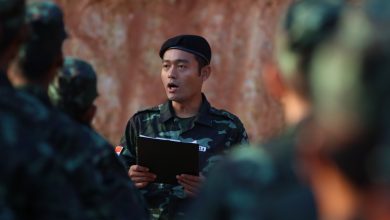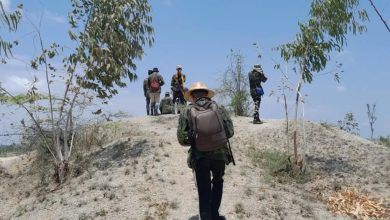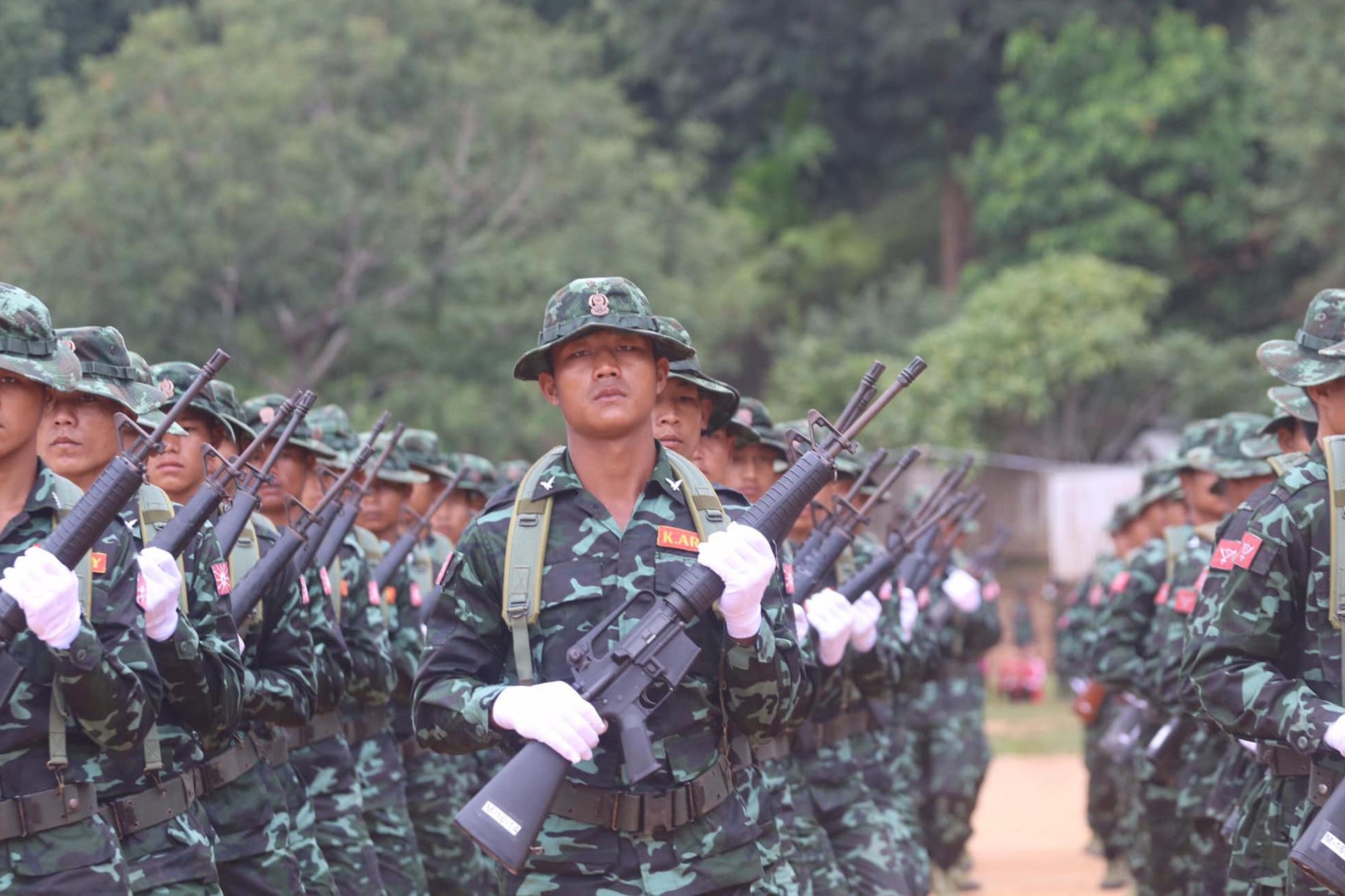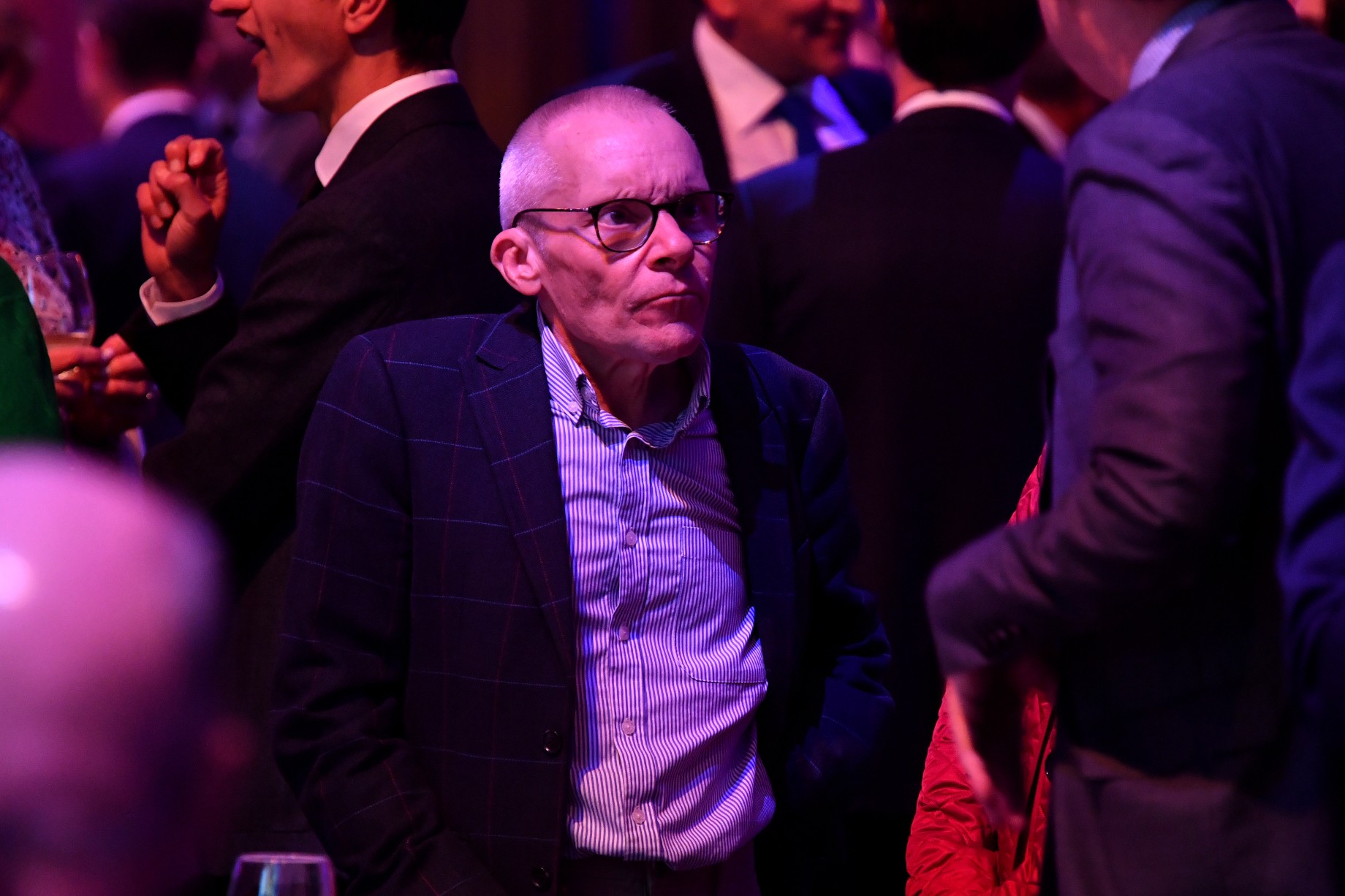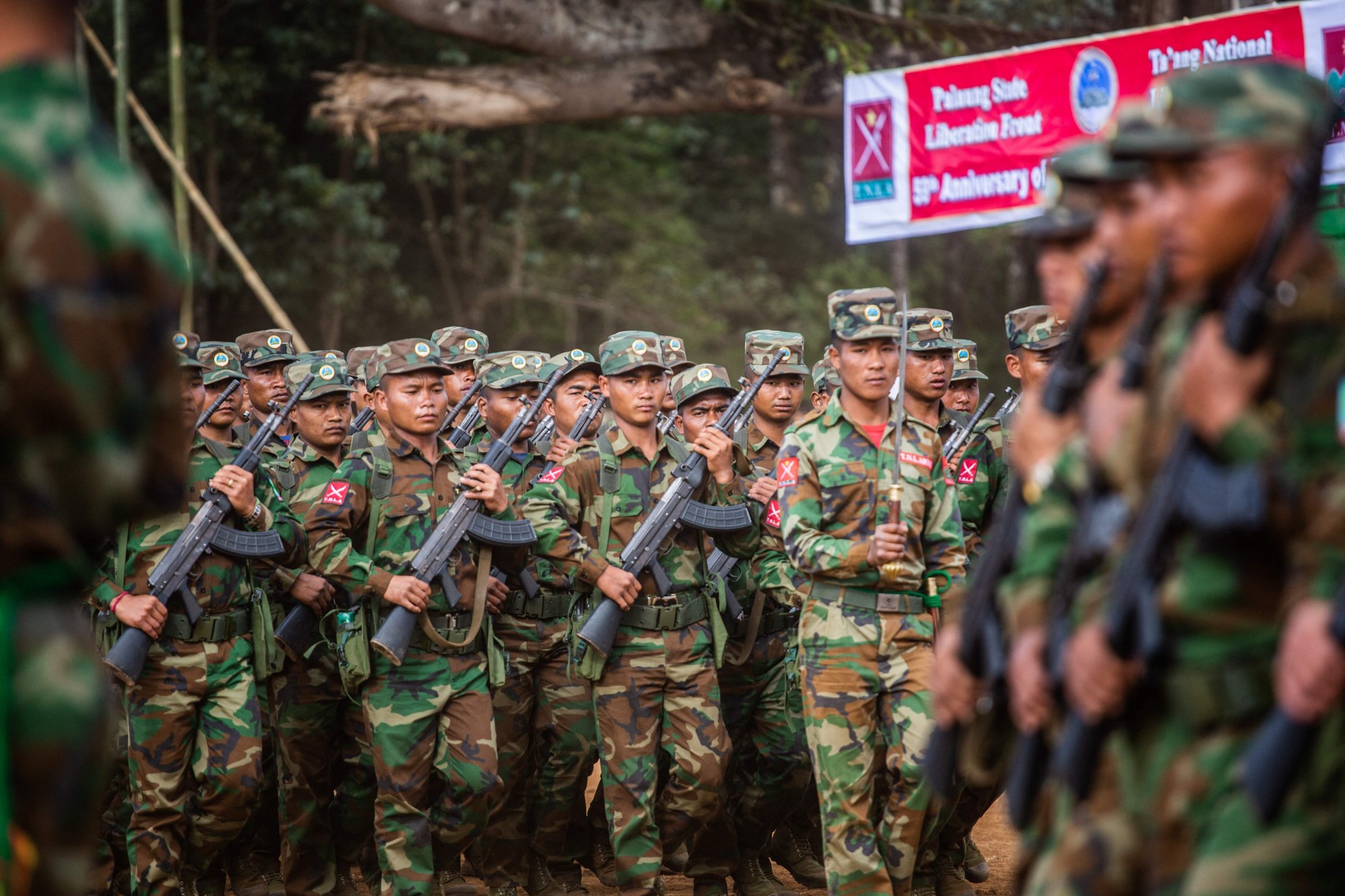
Territory across northern Shan State, a region which has been subjected to decades of civil war, has become further contested since Myanmar’s February 2021 coup.
A range of ethnic armed organisations are active in the region alongside more recently formed anti-coup resistance groups, as well as occupying forces belonging to the junta. The Palaung State Liberation Front (PSLF) and its armed wing, the Ta’ang National Liberation Army (TNLA), is one of the entities operating in the area, in which many ethnic nationalities—including the Ta’ang—reside.
Myanmar Now recently spoke with PSLF secretary general Gen Tar Bone Kyaw about his perceptions of the situation on the ground in northern Shan State, as well as his organisation’s relationships with the military council, the National Unity Government (NUG), and other ethnic armed organisations, including the Restoration Council for Shan State (RCSS) and the Kachin Independence Army (KIA).
Myanmar Now: In what parts of northern Shan State are most battles taking place between the TNLA and the Myanmar military?
Tar Bone Kyaw: There are ongoing battles in Kutkai right now and there are also occasional battles in Kyaukme. However, I haven’t heard anything about any big operations, only some occasional clashes.
MN: We have seen that the TNLA has been active from Nawngcho (Nawnghkio) in northern Shan State to neighbouring Pyin Oo Lwin in Mandalay Region. Is the organisation’s presence in this area part of a TNLA expansion or an offensive against the junta?
TBK: Nawngcho and the road connecting Pyin Oo Lwin and Mogok [in Mandalay] are within the territory of our Brigade 2. It does not necessarily mean that we are going on the offensive, provided that we are just operating in our own territory. However, it was much harder for us to set up a station in that area due to the junta and the RCSS having occupied it. However, we managed to drive out the RCSS to the eastern shore of the Namtu River after the [February 2021] coup, so we have been able to carry out more operations in the area. That’s all there is to it.
MN: What is TNLA’s relationship with the NUG?
TBK: We don’t have direct collaboration with the NUG yet. I think the NUG has some limitations regarding this matter, but we still don’t know how it’s going to turn out yet.

MN: The NUG has claimed that it will be collaborating with ‘ethnic allied groups’ to eliminate the military dictatorship. What is your opinion on this, and is the TNLA part of this alliance?
TBK: We have a relationship with some friends who are working within the NUG. We have been informed of their plans through separate channels as well. The NUG’s plan this year has improved a lot strategically in comparison to last year’s plan, immediately after the coup. However, there are several weaknesses in the way that the NUG approaches the ethnic armed organisations—they may even have some ‘limitations’ on how they can do that. I think that is the reason why some of their approaches have not been as effective as expected. Take our organisation, for example: we still cannot cooperate with the NUG on military operations. I think a revolution that is led only by the NUG and a few armed forces will not be one that encompasses the whole nation, nor one that can take down the dictatorship. I believe there are real hardships to overcome to succeed.
MN: So you mean to say that there still is not a strong alliance between the TNLA and the NUG?
TBK: That’s true. We are able to see that the NUG’s leadership in the revolution is very positive and the NUG’s role is essential in taking down the dictatorship. However, the NUG still needs to build further trust and develop stronger connections in order to move forward and form more meaningful alliances.
MN: The RCSS has invited ethnic armed organisations operating in Shan State to meet with them. What is your response to this?
TBK: We are still monitoring the RCSS’s actions to determine their intentions behind that statement. Even if we were not at war, the RCSS is an armed force trying to represent the Shan State public and we are also an organisation doing the same. I think it would be more beneficial for us to have a meeting rather than going to war.
MN: The KIA, along with the NUG’s People’s Defence Force (PDF), have been fighting against the junta in territory also claimed by the TNLA. We have heard that there have been civilian casualties in these clashes. What can you tell us about this?
TBK: Both the KIA and the PDF are attempting to attack junta bases and offices in our territory, and in carrying out these attacks, the public has suffered a lot. The KIA and the PDF withdraw once these battles are over, but the damage done to the civilians is permanent. The KIA has not provided any compensation or explanation for this. We still cannot determine when the battles might resume, but provided that they withdrew to a place not too far from Manton Township [in the Palaung Self-Administered Zone, where the clashes took place], I think they will try to resume their activities.

MN: Has the structure of or relationships within the Brotherhood Alliance—of which the TNLA is a member, alongside the Myanmar National Democratic Alliance Army (MNDAA) and the Arakan Army (AA)—changed since the coup? What can the members expect, amid increasing clashes with the military?
TBK: The rainy season is coming to an end and the dry season is on its way, and it is a known fact that the military typically launches attacks against us during this season. Because of this, we know quite well how to defend ourselves. We have had to fight some battles even though we didn’t want to. Take the battles with the military in the AA’s territory, for example. The three members of the Alliance hold regular meetings, so I am confident that our leaders will be able to come up with better plans to deal with the current matters. We are currently making preparations for such meetings as we speak.
The NUG still needs to build further trust and develop stronger connections in order to move forward and form more meaningful alliances
MN: The military has been attempting to convince some ethnic armed organisations to form an alliance with them in what may be a way for them to reduce the number of frontlines on which they are engaged across the country. Have they made such an offer to the TNLA?
TBK: Over the past year since the coup, a delegation from the military led by Gen Yar Pyae [the junta’s national security advisor] tried to meet with us through China. However, we have not attended such a meeting.
MN: The members of the Federal Political Negotiations and Consultative Committee, of which the TNLA is also a member, had a meeting in Panghsang in Wa territory in September. What matters were discussed during that meeting?
TBK: It was more of a welcoming ceremony for the new generation leaders than an actual meeting [Editor’s Note: The United Wa State Army has recently appointed younger members into its leadership]. It wasn’t a political meeting. However, because it was attended by the people leading the ethnic revolution, they might have discussed some political matters, but it was not an intentionally political meeting.

MN: It seems that ethnic armed organisations are becoming divided between those who are opting to engage with the military through political talks, and those who refuse to do so and insist that it must be obliterated. Where does the TNLA stand?
TBK: It is impossible for a group to hold dialogue [with the military] without having a strong revolutionary organisation that can protect its people and territory. It is also impossible to revolt against the dictatorship with armed resistance alone. Both the NUG and the ethnic armed forces, as well as everyone taking part in the revolution, must prepare strategically on both military and political fronts. I believe the leaders will try to do this one step at a time, transparently.
This interview has been lightly edited for clarity.
